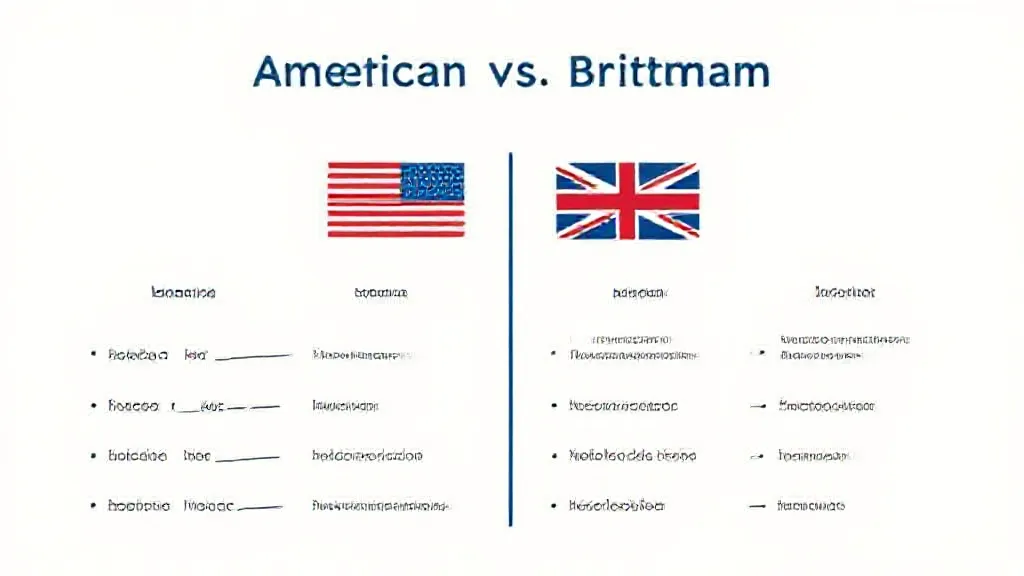The English language, while universally recognized, showcases notable variations in grammar between American and British dialects. These differences are not merely superficial; they encompass a range of grammatical structures, usage rules, and stylistic preferences that can significantly affect communication. Understanding these distinctions is essential for learners, educators, and professionals involved in international contexts.
Variations in Spelling and Word Choice
One of the most apparent differences lies in spelling and vocabulary. For instance, words like "color" in American English contrast with "colour" in British English. Similarly, "theater" is commonly used in the U.
S., while "theatre" is preferred in the U.K.
These variations extend beyond simple spelling; they often reflect deeper cultural preferences and historical developments in the language. The Oxford English Dictionary provides an extensive overview of these differences, highlighting how regional preferences have evolved over time.
Differences in Verb Forms and Tenses
Another area of divergence is the use of verb forms and tenses.
American English tends to favor the simple past tense, as seen in the use of "I already ate," whereas British English might employ the present perfect, saying "I have already eaten." This distinction can lead to confusion for learners who may not be aware of the preferred tense usage in different contexts. The British approach often emphasizes the relevance of past actions to the present, while the American style may focus more on the action itself.
Prepositions and Article Usage
Prepositions and articles also exhibit discrepancies between the two dialects. For example, Americans might say "on the weekend," while the British would typically say "at the weekend." Such variations can seem minor but can lead to misunderstandings in conversation or writing.
Additionally, the use of articles can vary; British English might use "the" before certain institutions (e.g., "the hospital"), while American English often omits it (e.
g., "in the hospital").
Collective Nouns: Singular vs.
Plural
The treatment of collective nouns is another grammatical distinction. In American English, collective nouns are generally treated as singular (e.g.
, "The team is winning"), while British English may treat them as plural (e.g., "The team are winning").
This difference reflects contrasting views on whether a collective noun represents a single unit or multiple individuals. Such nuances can be critical in formal writing and should be understood by anyone engaging with both dialects.
Punctuation and Quotation Marks
Punctuation rules also differ, particularly regarding quotation marks.
American English typically uses double quotation marks for direct speech, while British English often prefers single quotation marks. Furthermore, punctuation placement can vary; in American English, periods and commas usually go inside quotation marks, whereas British English may place them outside unless they are part of the quoted material. These distinctions can affect the clarity and professionalism of written communication.
Use of the Subjunctive Mood
The subjunctive mood presents another grammatical contrast. American English frequently employs the subjunctive in formal contexts (e.g.
, "If I were you"), while British English may use the indicative form more commonly (e.g., "If I was you").
This difference can influence the tone and formality of discourse, making it essential for speakers and writers to be aware of their audience and context.
Regional Variations and Global Influence
Beyond these differences, it is important to recognize that both American and British English have regional variations that further complicate grammar rules. For instance, Canadian English often blends elements from both dialects, leading to unique grammatical structures.
Additionally, as globalization continues to influence language, the emergence of new English varieties, such as Indian English or Singaporean English, presents further complexities in understanding grammar across different cultures.
Conclusion: Embracing the Diversity of English Grammar
In conclusion, the differences between American and British grammar are significant yet fascinating. They reflect historical, cultural, and social developments that have shaped the English language.
For learners and educators, recognizing these distinctions is crucial for effective communication and comprehension. By embracing the diversity of English grammar, individuals can enhance their language skills and foster better understanding in an increasingly interconnected world.
